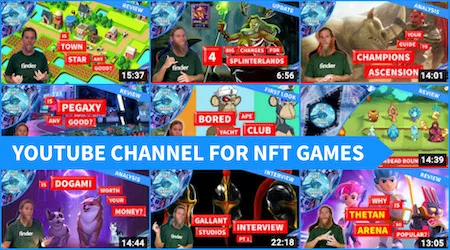
YouTube Channel For NFT Games
Chris Stead, Finder's game expert here. I've been covering video games since the mid-90s, and I've turned all that experience towards providing honest feedback on NFT and P2E gameplay.
Whether traditional gamers like it or not, NFTs will impact major consoles and video game franchises. The question is, will your favourite developer or publisher play a role in their adoption? Perhaps they may ignore NFT games and the P2E phenomenon, but still utilise blockchain technology in some way?
In a series of articles that examine where each AAA game developer, publisher and console manufacturer stands on NFTs and blockchain technology, I'm going to answer these questions. This article focuses on Microsoft, a name that should be familiar to every single one of you. Not only is it the home of Windows 11, but also the Xbox console and the Game Pass Ultimate video games on demand subscription service.
For more information, you can also check out our Epic Games, Square Enix, Electronic Arts, Nintendo, Ubisoft and Sega gift guides.
For now though, let's focus on the web3 future of Xbox gaming.

Few companies, if any, have as much influence on the video gaming landscape as Microsoft. If you want to argue the case, simply look at its market cap of US$2.3 trillion. That's the biggest in the gaming space by some margin. In comparison, that figure is more than 16 times bigger than Sony's market cap, which sits at US$140 billion.
The main reason for this is, of course, not directly related to gaming. For starters, there's the Windows operating system and everything that's part of it, such as Office. But obviously Windows, as a platform, hosts the vast majority of the desktop gaming market. In addition, Microsoft manufactures the Xbox range of consoles. Most recently this includes the Xbox Series X and Xbox Series S.
More pertinent to any conversation around blockchain is Xbox Game Pass, a video games on-demand subscription service that passed the 25 million user mark in early 2022. It's a hit on both PC and Xbox, and is spreading to mobiles and smart TVs this year using xCloud.
In addition, Microsoft owns over 30 internal game development studios. In recent years, that has included the acquisition of some of the biggest properties in the industry. Microsoft bought Minecraft developer Mojang, beloved publisher Bethesda (Elder Scrolls, Fallout, Doom, Quake, Wolfenstein, Dishonored, Starfield) and even mega publisher Activision-Blizzard (Skylanders, Call of Duty, Overwatch, World of Warcraft, Diablo, Crash Bandicoot, Guitar Hero), among others. These join already huge first-party franchises like Gears of War, Forza, Halo and Fable.
So, with all that in mind, one thing is for sure. Whatever Microsoft does in the NFT games, blockchain, metaverse and P2E space will impact gamers' lives significantly.
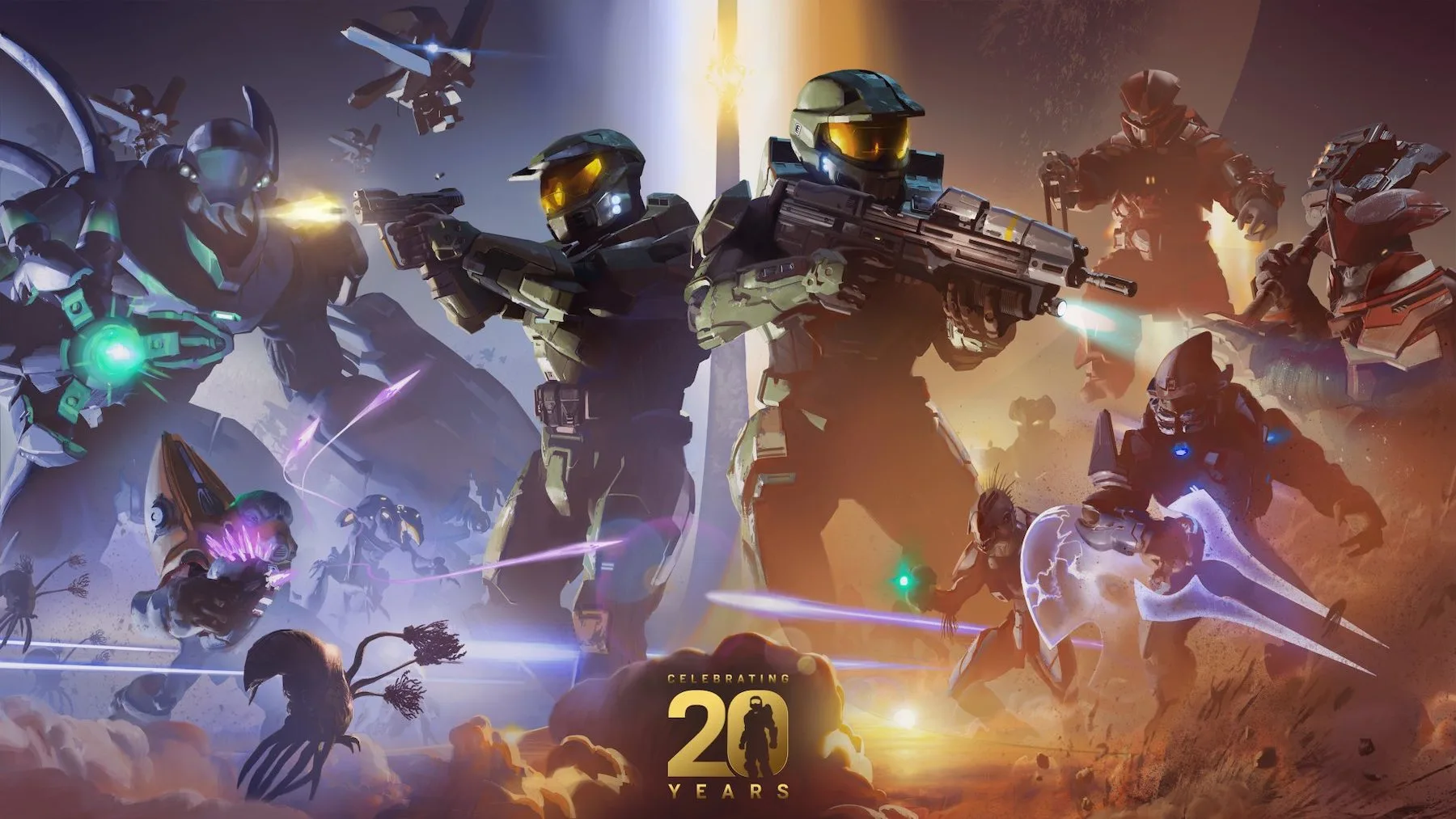
I'll cut right to the chase; Xbox Games Pass has been running on blockchain for years. Microsoft deployed blockchain technology as far back as 2015 on the Azure cloud network and has been running royalties, transactions, item ledgers and the services on the Xbox backend since 2018. Given an NFT is essentially a digital receipt for a virtual product stored on a blockchain, then in all but name, everything you buy through the Xbox Live Marketplace is effectively an NFT already. Only it's just contained within Microsoft's closed system.
When Microsoft first started leveraging the power for blockchain for Xbox and PC, I was told how much better the blockchain had made life for those in the Xbox Live back end's ecosystem. Before blockchain, royalties to developers – most of them indies – were still done on excel spreadsheets. It would take at least a month to get word to developers on how much they would be getting, and even longer to process the payments through traditional cross-border banks.
This new system was called the Xbox Enterprise Blockchain Platform, it provided instant information on royalties and quicker payments. For small indies working on the edge of financial ruin, this was a game changer. While for Microsoft, the lack of manual labour resulted in a huge saving.
At the time, any company could licence the platform. It was one option that Ubisoft explored, for example, although I have been told they opted not to continue with it.
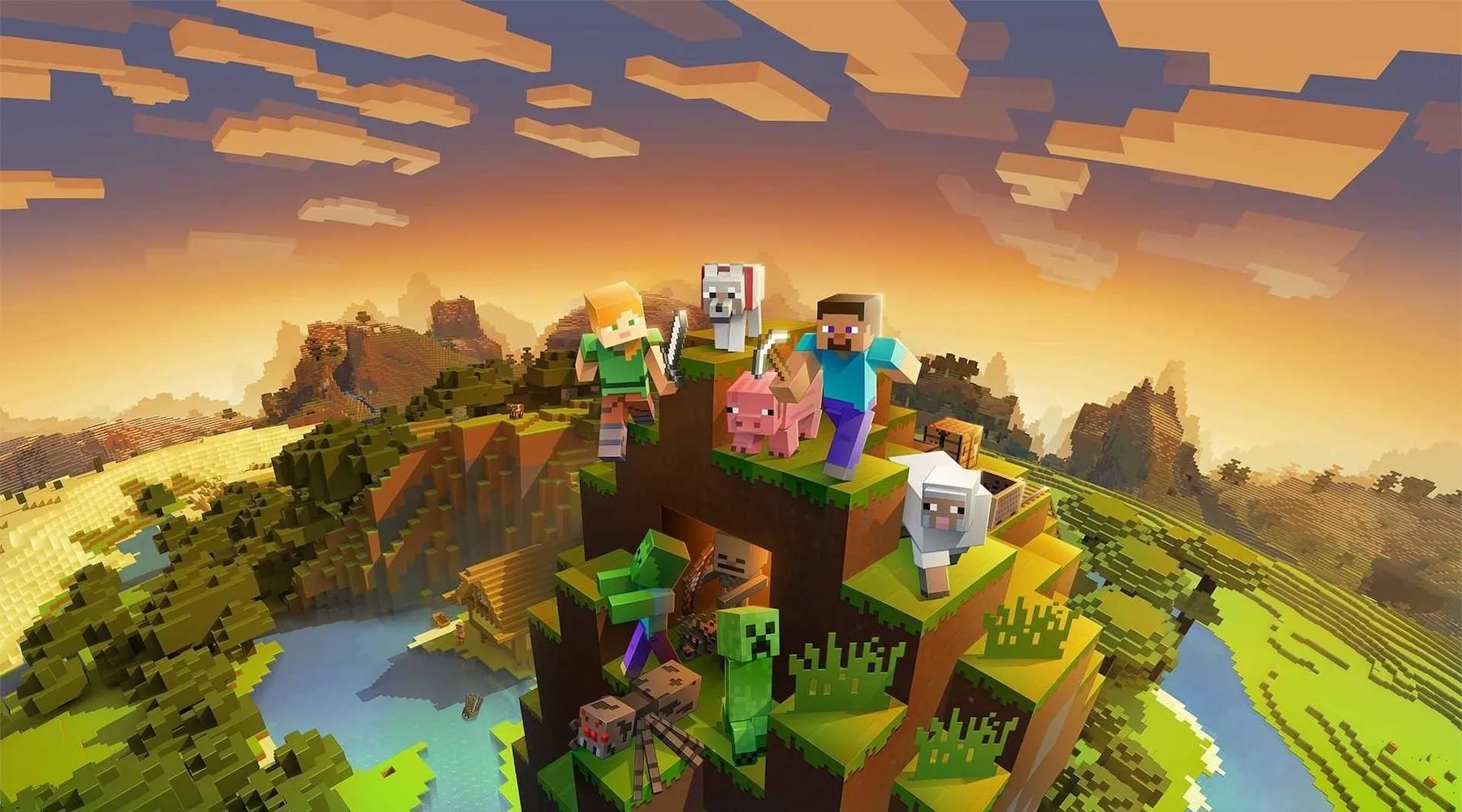
While Microsoft had long been using blockchain in its backend, the first major public - or at least open - use of the technology came in February 2021. To celebrate International Women's Day, Microsoft minted a run of Minecraft NFTs. To acquire them, users had to complete an educational space game experience, which explored the female pioneers in the industry.
Minecraft NFTs came and went without too much fanfare. But they are notable for being developed in partnership with leading NFT middleware provider Enjin. And also for having utility, unlocking quests in the Minecraft server for the Enjin-supported MyMetaverse experience.
Bryana Kortendick, VP of Operations & Communications at Enjin, said of the partnership: "Education is key to empowering the next generation of innovators. Enjin is proud to work alongside Microsoft to generate innovative opportunities for merging virtual worlds, bringing digital communities closer together and celebrating powerful women in science and tech."
While Simon Kertonegoro in the curiously-named role of vice-president of developer success was more animated. "NFTs are important because they provide irrefutable proof of digital scarcity. With over 126 million users, the ability to spawn blockchain assets inside a Minecraft server is a huge step towards NFT adoption."
Microsoft had less to say. "Enjin's platform powers innovative projects across the gaming and wider blockchain ecosystem, [an allows us to] integrate cutting-edge technology," said Sherry List, Azure developer engagement lead.
In October 2021, Microsoft NFTs emerged again. This time it was as a promotional tie-in to the launch of Windows 11. Given away for free, a limited number of fans were able to score themselves Windows 11 NFTs that had little utility or value. However, it's another sign that Microsoft is keen to experiment with, mint and deliver NFTs to the public.
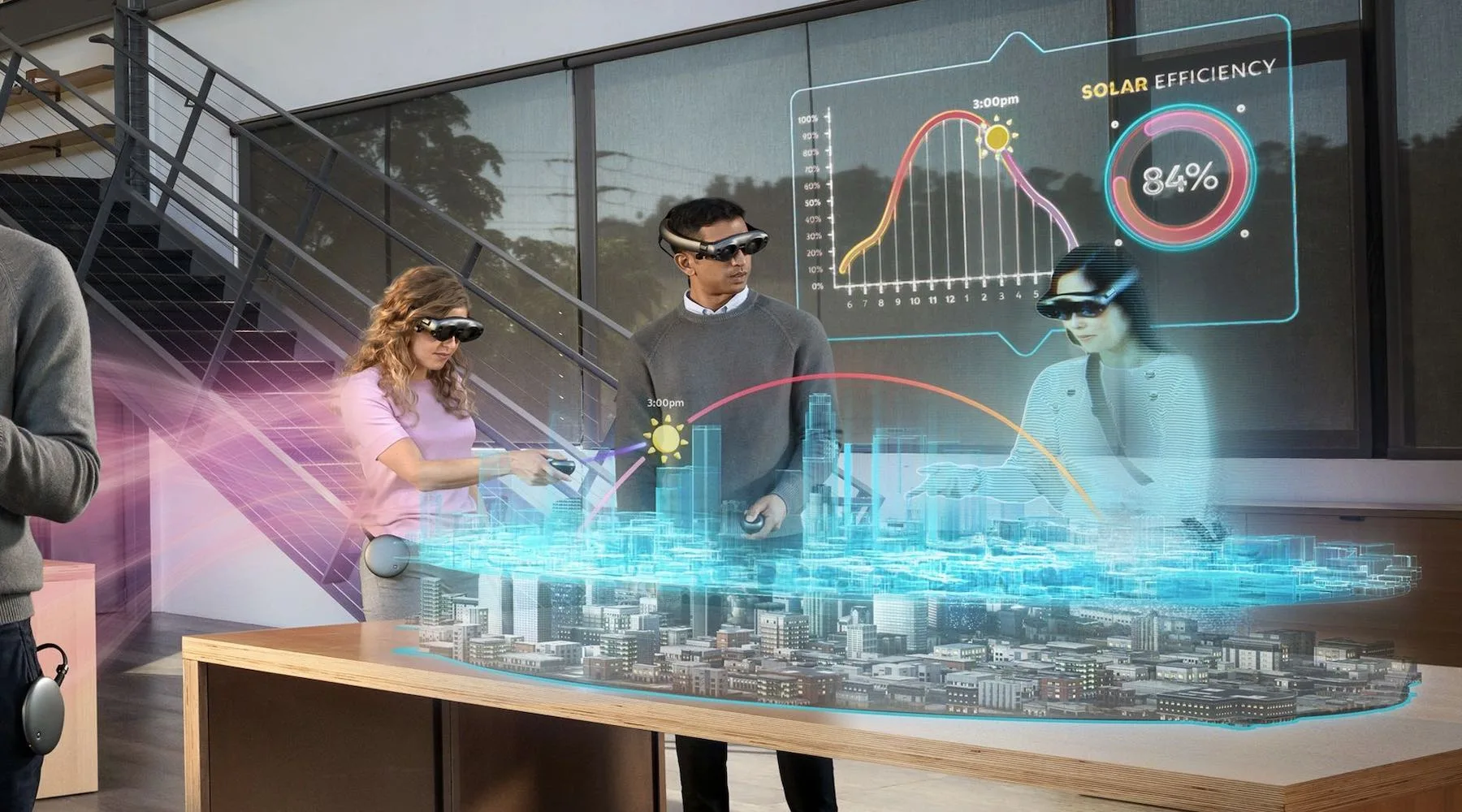
In March 2021, Microsoft introduced us all to Mesh. This is now seen as something of a first step towards an Xbox metaverse future. Introduced initially through Teams, Microsoft Mesh shifts online video communication from the 2D video landscape into a 3D environment. A mixed reality space where users can exist as holograms as they converse and work together. CTO John Roach described Microsoft Mesh as "a gateway to the metaverse."
While Mesh is primarily an enterprise initiative at first, it's part of the software development kit that ties Xbox and PC together through Game Pass. And games, such as Minecraft, have been used to showcase this technology in the past.
Microsoft Mesh is seen as the software that will drive future adoption of the company's Hololens 2 AR headset. While rival Sony pushes forward with PS VR2 on PlayStation, Microsoft can look to position its Xbox platform to lead with augmented reality.
At the time, Xbox Series X director of project management Jason Ronald weighed in. His comments suggest that Mesh as a metaverse tool could be adopted into the console at some point.
"One of the benefits that we have in a company of this size is, we can learn from other divisions, and we can share technology with them. So, the Hololens team is a team that I meet with semi-frequently to kind of understand where they're pushing the technology. And then, like I said before, we're always thinking about, how would we apply this to games? There's examples of, you know, this notion of spatial anchors and presence - knowing where you are in the physical world. So, nothing to announce now, but definitely something that we keep tabs on. When the technology is ready or if we can come up with a compelling experience around it, that's one of the benefits that we have in a company of this size."
In November 2022, Microsoft earmarked "early 2022" as a release window for the Microsoft Mesh metaverse. A preview version then appeared in March 2022, for access by a limited number of people.
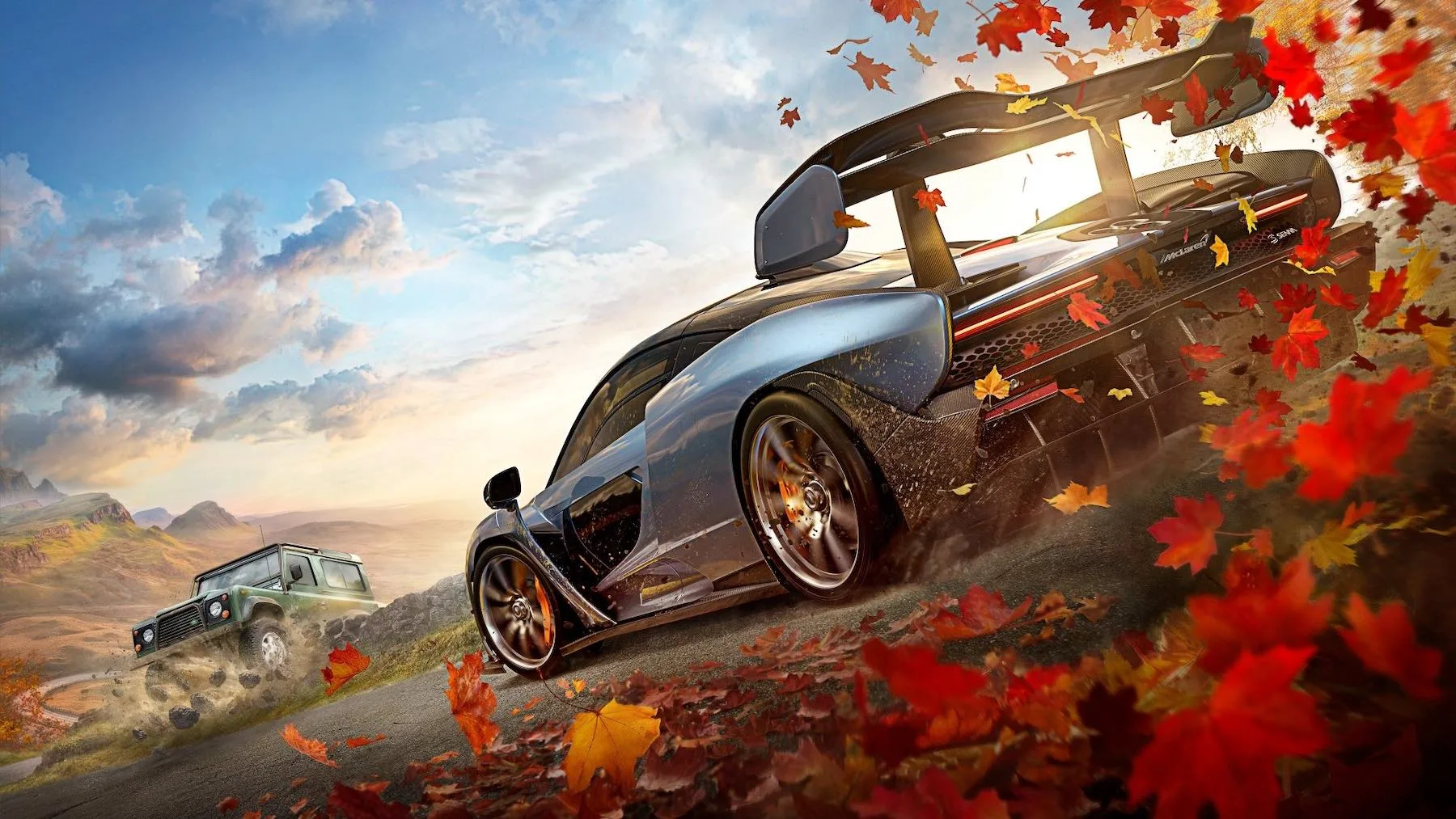
That initial platform was scuttled in September 2021, but in its place has come the Microsoft Azure Confidential Ledger blockchain. As part of getting it off the ground, Microsoft invested in ConsenSys – the company behind Ethereum.
What's not clear is how integrated the blockchain is into the general Azure back end licensed by companies all around the world. We know, for example, that Sony uses Azure. While Sega – a company that has been actively supporting NFT growth – is using Azure for its next run of AAA games, too.
Elsewhere, Microsoft is funding the creation of a carbon neutral, environmentally-friendly blockchain with an outfit called Palm NFT Studio. It's a move that should be music to the ears of gamers concerned about the environmental impact of NFTs.
Despite being a leader in the use of blockchain in the gaming space and already effectively minting every Xbox Live purchase as an NFT in the background, to consumers, Microsoft has portrayed itself as wary. Microsoft's executive vice president of gaming, Phil Spencer, said in November 2021:
"What I'd say today on NFT, all up, is that I think there's a lot of speculation and experimentation happening, and that some of the creative that I see today feels more exploitive than about entertainment. I don't think it necessitates that every NFT game is exploitive. I just think we're kind of in that journey of people figuring it out. Anything we looked at in our storefront that we said is exploitive would be something we would act on. We don't want that kind of content. They're probably not things you want to have in your store."
The analysis of this quote by traditional games media at the time was curious. They saw it as Phil Spencer declaring he didn't want or like NFTs. I'm not so sure. Using words like "feels" and "probably" aren't definitive. And what is the definition of exploitive in Microsoft's eyes, exactly? If anything, Spencer was saying that it's early days and Xbox wants to vet NFT games for exploitive mechanics before allowing them on the platform.
Put it this way; Ghost Recon: Breakpoint – a game tied to NFTs now – is still available on Xbox.
As mentioned above, Microsoft had already made Minecraft NFTs and promotional Windows 11 NFTs. So, Spencer was either trying to play the PR game with gamers, or isn't aligned with what the rest of his company is already doing.
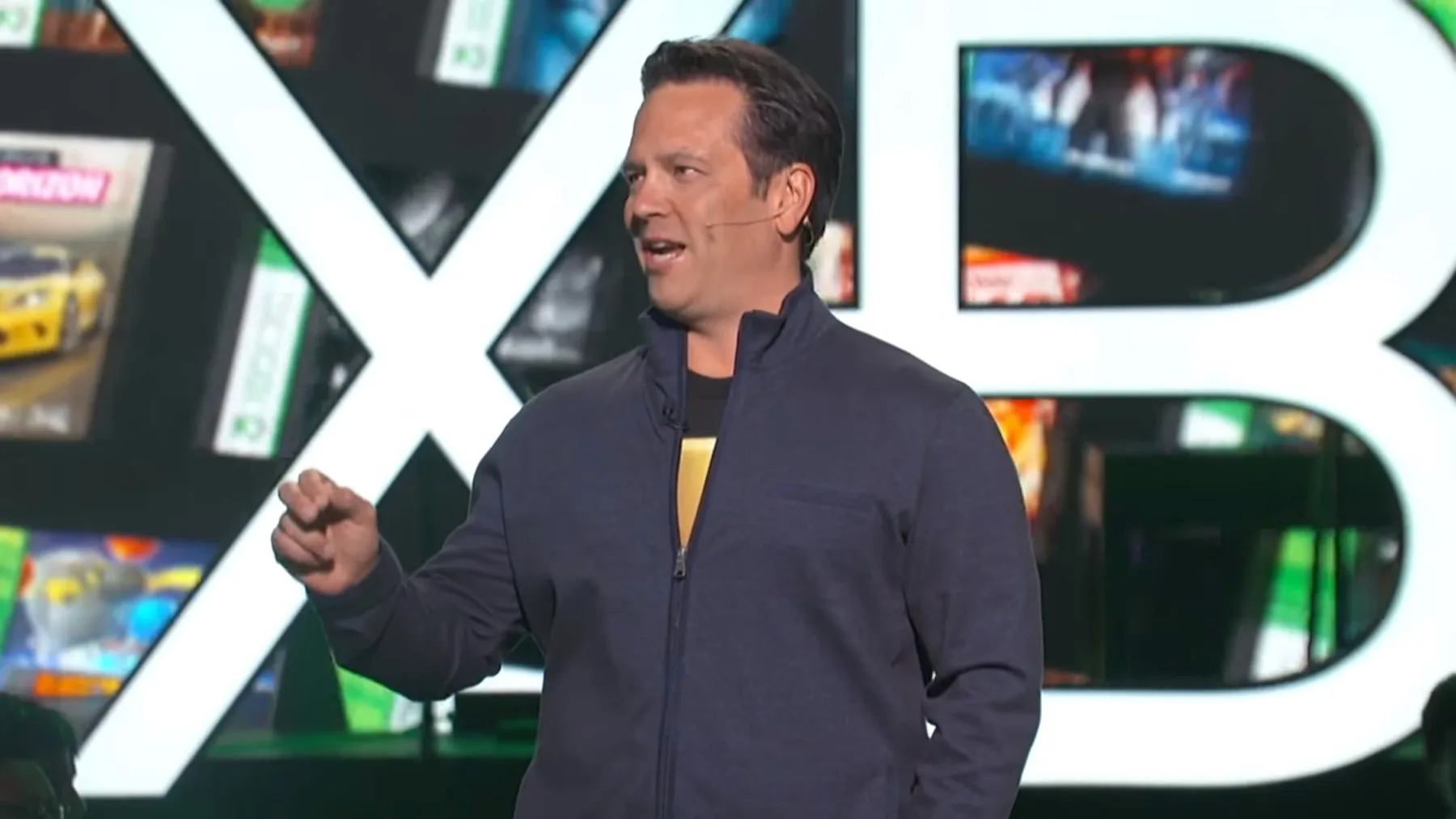
In November 2021, a few weeks before Spencer revealed wariness around NFTs, Microsoft CEO Satya Nadella expressed excitement around a potential Xbox metaverse.
"Absolutely, you should expect to see [the metaverse] expand into gaming. The way I think of it, we're a platform company. We always build the core intrinsics first and then build it into our first-party applications. So, you absolutely can expect us to do things in gaming. If you take Halo as a game, it is a metaverse. Minecraft is a metaverse and so is Flight Sim. In some sense they are 2D today, but the question is 'can you now take that to a full 3D world?' We absolutely plan to do so."
Nadella's analogy suggests that he sees the move of games from single stars to blockchain connected galaxies as transformative as 2D to 3D gaming. The new Super Mario 64! The new Doom!
So, it's a case of mixed messaging in many ways. Microsoft is being cagey, no doubt aware of the ferocity with which gamers can attack something they don't approve of. Even as recently as April 2022, the message out of Xbox was staying vague; "[We're] aware and looking into NFTs, cryptocurrency and other emerging technologies, but don't yet have anything to share."
Perhaps the Minecraft Blockverse debacle is to blame.

Chris Stead, Finder's game expert here. I've been covering video games since the mid-90s, and I've turned all that experience towards providing honest feedback on NFT and P2E gameplay.
Remember when I spoke about Minecraft NFTs earlier? It enjoyed soft success in partnership with Enjin?
Sadly, for all concerned with bringing Minecraft NFTs mainstream, Blockverse happened in January 2022. This project looked to create a P2E Minecraft server, bouyed by NFTs and a crypto economy. However, after selling out its NFT stock in 8 minutes and raising US$1.2 million, Blockverse was promptly pulled from existence by its creators. A few days later, an official statement appeared on the Blockverse Twitter.
"The FUD [fear, uncertainty, and doubt] quickly descended into harassment, threats, and doxxing. The team noticed all this and panicked, deleting the discord server on impulse. Everything else was closed to prevent the continuation of harassment that had occurred so far. Even then, the plan was to reopen once everyone had time to calm down."
Further promises that they would bring everything back online have not eventuated as of July 2022.
This became a key event in the anti-NFT movement by traditional gamers for obvious reasons. It also likely burned any short-term opportunity for Microsoft to associate itself with any wording around a Minecraft metaverse. Which is a shame, as the game is uniquely positioned to succeed in this space. Look at The Sandbox as a working example.
In late January 2022, the gaming world was rocked when Microsoft acquired mega-publisher Activision-Blizzard. Costing US$68.7 billion, it's not only the biggest acquisition in gaming history, but by a stretch. The next closest is Take-Two's US$12.7 billion purchased of mobile powerhouse Zynga.
The purchase of Activision-Blizzard followed Microsoft's 2021 acquisition of Bethesda. And it added such notable IP as Call of Duty, Crash Bandicoot, Guitar Hero, Tony Hawk, Spyro the Dragon, Diablo, Overwatch, Candy Crush, Warcraft and StarCraft to Xbox's army of brands.
What's particularly interesting is how the company justified this immense spend. And it was for its future plans around an Xbox metaverse. Indeed, Nadella said as much at the time. He claimed the deal would "provide building blocks for the metaverse. In gaming, we see the metaverse as a collection of communities and individual identities anchored in strong content franchises accessible on every device."
In "every device" Nadella refers to Xbox Game Pass Ultimate, and how its video games on-demand service uses xCloud to bring Xbox franchises to TVs, mobiles, tablets, PC and consoles. Nadella continued:
"Metaverse is essentially about creating games. It is about being able to put people, places, things [in] a physics engine and then having all the people, places, things in the physics engine relate to each other. And so, the way we will even approach the system side of what we're going to build for the metaverse is, essentially, democratize the game building."
"To me, just being great at game building gives us the permission to build this next platform, which is essentially the next internet: the embodied presence. Today, I play a game, but I'm not in the game. Now, we can start dreaming [that] through these metaverses: I can literally be in the game, just like I can be in a conference room with you in a meeting."
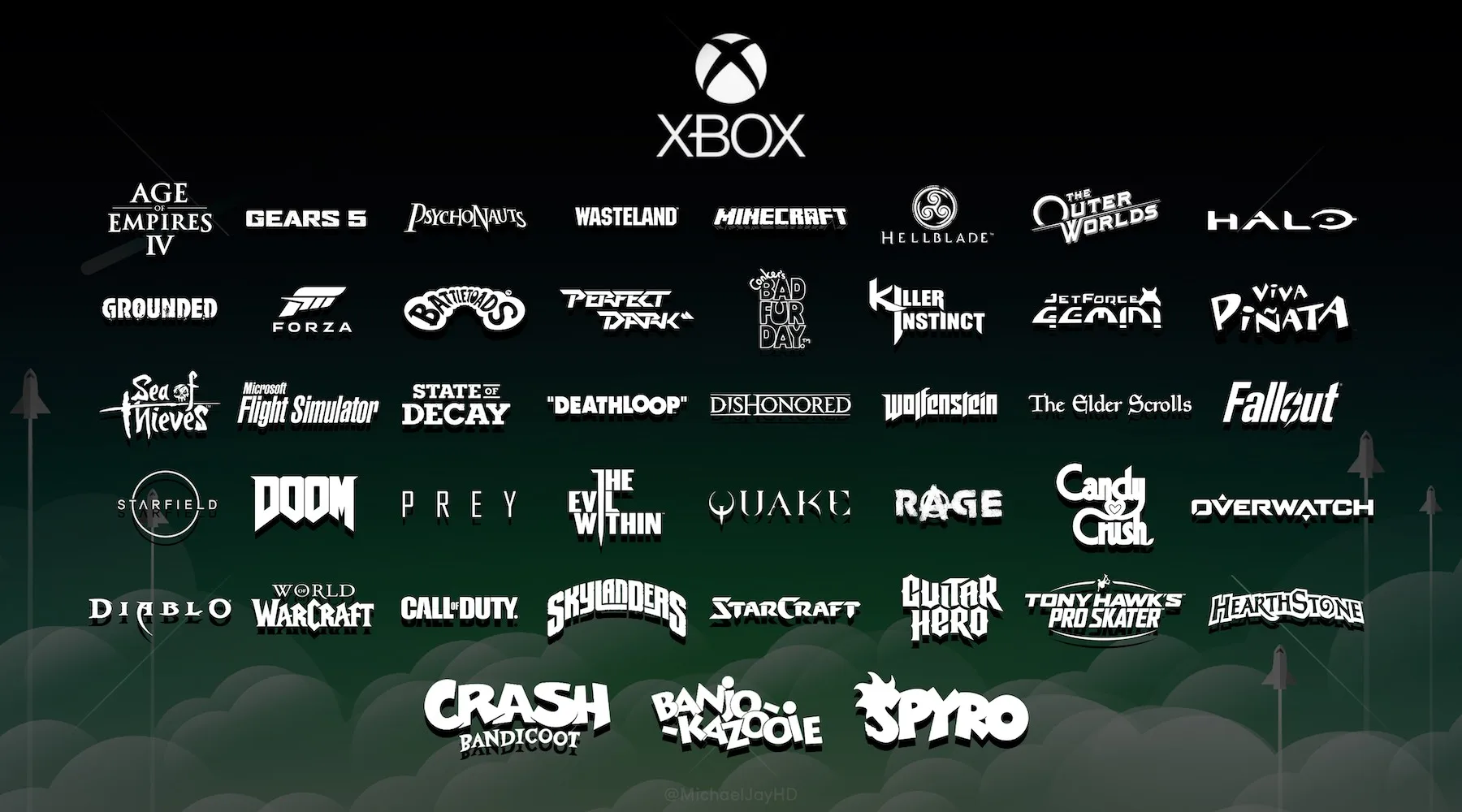
But the mixed messaging may be because of genuine division within the company's ranks. In April 2022, staff for Microsoft-owned developer Mojang – best known for mega-hit Minecraft – proposed that their peers sign an NFT games pledge. Signees will commit to ensuring studios under their watch are taught about the downsides of NFTs prior to any NFT game development.
The pledge talks about staying away from rigging scarcity, driving speculative markets, pay-to-win mechanics, mass energy consumption blockchains and more.
Mojang developer and pledge co-writer Cory Scheviak said at the time. "For us as game developers, NFTs change the meaning of what a game is, and that to us is quite worrying. People can make all of the side arguments they want about giving people jobs and the things they say are positives. But at the end, it's never really been about players. It's never really been about helping people. It's always been about making as much money as possible."
That may be true, but I'd argue Scheviak is naïve in the extreme if he doesn't know that's always been the case. Loot boxes anyone?
In mid-June 2022, Microsoft helped lead a group of 33 companies in forming the Metaverse Standard Forum, hosted byu the Khronos Group. Its goal is to create some standards that the industry as a whole could adopt to make the concept of a metaverse easier to understand regardless of the company involved. A unified definition and terminology. This is yet another clear step forward towards realising a future Xbox metaverse.
Within two weeks the number of principal members had swelled to over 140. With close to 200 additional participating members. Other notable AAA game companies involved in the Metaverse Standard Forum include Epic Games, nVidia, HTC, Sony, Unity and Meta (aka Facebook/Oculus).
Neil Trevett, president of the Khronos Group, spoke on behalf of the forum.
"The metaverse will bring together diverse technologies, requiring a constellation of interoperability standards, created and maintained by many standards organisations. The Metaverse Standards Forum is a unique venue for coordination between standards organisations and industry, with a mission to foster the pragmatic and timely standardisation that will be essential to an open and inclusive metaverse."

In late July 2022, developer Mojang changed its terms and conditions to ban web3 technology.
"We have these rules to ensure that Minecraft remains a community where everyone has access to the same content," Mojang's statement read. "NFTs, however, can create models of scarcity and exclusion that conflict with our Guidelines and the spirit of Minecraft."
"To ensure that Minecraft players have a safe and inclusive experience, blockchain technologies are not permitted to be integrated inside our client and server applications, nor may Minecraft in-game content such as worlds, skins, persona items, or other mods, be utilized by blockchain technology to create a scarce digital asset."
For years now, a Minecraft metaverse has been spoken of alongside the likes of Roblox and Fortnite as a likely conduit to a Web3 enabled future. A future we know Microsoft is actively engaged in. As one of Microsoft's biggest guns in chasing metaverse dominance, Mojang's statement stands in stark contrast to what their parent company is saying. Especially given the statement focuses not just on NFTs, but blockchain technologies.
That suggests this story is far from over.
Microsoft may be sending out smoke signals of neutrality about its stance on blockchain, NFTs, the metaverse and P2E gaming, but Switzerland it is not. The company was one of the first to jump on the blockchain bandwagon. It's been using the tech for years to drive the Game Pass economy and it's investing heavily in players like Palm NFT Studio and ConsenSys.
In addition, it would seem enough has been said internally for its own developers to come forward with a public pledge on how NFTs should be integrated.
To be continued…
Need to put an NFT on another blockchain? Here’s how.
Learn how you can bank in on the metaverse hype or carve out a career in this expansive virtual space.
Step-by-step guide on minting an NFT.
Learn about different types of metaverses and what you’ll need to join one.
What we know so far about the upcoming NFT-based blockchain game, Champions Ascension
Learn how to play with one of the largest cryptocurrency metaverses in the world.
The definitive ranking of the NFT adoption across 26 countries.
Read our step-by-step guide to buying NFTs, including what you need to get started and which marketplaces you can use in Australia.
Creating an NFT is easier than you might think. Here are 5 steps to make an NFT, and other details you should know.
Looking for an Axie Infinity scholarship? This NFT blockchain game guide lists all the best guilds with tips on how to be the best scholar.